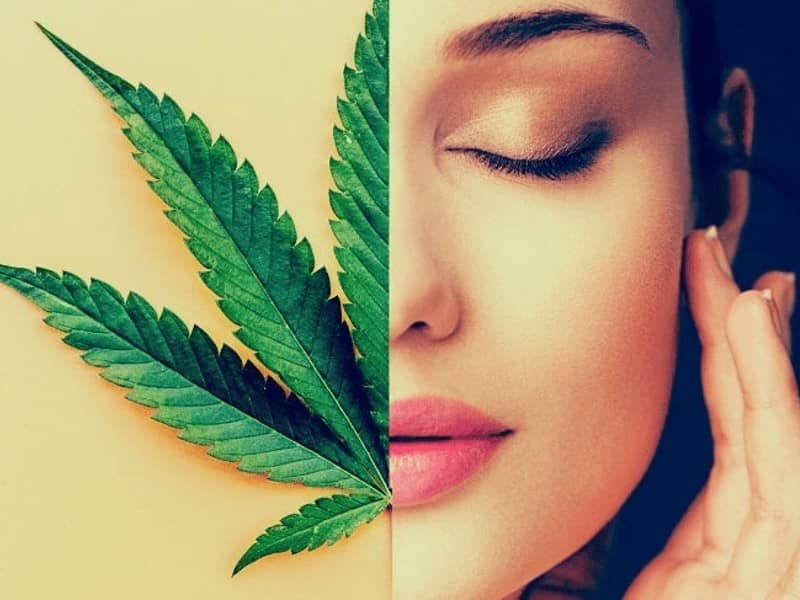One of the most overlooked and underappreciated organs of the human body is our skin. It weighs 8 lbs, covers up to 23 square feet and is the best line of defense against foreign invaders. Recent studies suggest that skin can help control our immune system. The state of our skin is an indicator of the general well-being of our bodies. Most chronic skin conditions cannot be cured, but they can certainly be managed. Can cannabis control the many symptoms of chronic skin conditions? The answer seems to be a resounding YES!
Cannabis topicals can alleviate and relieve many of the symptoms associated with skin conditions which include the following:
- Inflammation
- Itching and Burning
- Pain
- Infection
- Acne
- Insect Bites
- Scrapes and Wounds
How Cannabis Manages Eczema and Psoriasis
Eczema
The cause of eczema is not known but it is thought to be a response to an overactive immune system in reaction to certain triggers. It is most common amongst those with a family history of allergies or asthma. Symptoms include intense itching, an itchy rash, blisters with oozing, ear discharge, redness and inflammation around blisters, and lichenification which are thickened or leather-like areas which result from long-term irritation and scratching. Triggers can include rough or coarse materials, excessive heat or cold, household products, animal dander and even colds. Stress causes the condition to worsen. Eczema appears most often in the crooks of the elbow and the backs of the knees. About 30 million Americans suffer from eczema.
Psoriasis
Psoriasis occurs when the immune system triggers skin cells to grow faster than they should. Instead of the dead skins cells being shed by the skin, they accumulate, causing well-defined, red scaly patches. Psoriasis appears most often on elbows and knees. It can sometimes cause joint stiffness and swelling. It can even affect the nails. Psoriasis causes much milder itching than with eczema. Triggers include infections, cold weather, excessive alcohol consumption, smoking, certain medications, and stress. About 8 million Americans suffer from psoriasis.
The authors of a review in The Journal of Experimental Dermatology indicate that there is a therapeutic possibility of using cannabinoids to treat skin diseases. Evidence has shown that cannabinoid receptors, CB1 and CB2, are expressed in healthy and diseased skin. Every individual has a unique expression rate dependent on several factors including genetics, prescription drug history, and cannabis usage history. According to the authors, a targeted treatment for these receptors should prove effective.
Anecdotal evidence indicates that regular usage of cannabis topical butter or hemp oil causes symptoms of skin conditions to decline significantly. Adding skin moisturizers such as coconut oil, shea butter, and essential oils to your cannabis topical further reduce symptoms.
Cannabinoids are thought to reduce the allergic responses from inflammatory skin diseases. Research using mice indicates that those lacking cannabinoid receptors experience more swelling and buildup of immune cells than normal mice. When CB2 receptors are blocked, there may be a decrease in inflammation.
The role that skin plays in the endocannabinoid system (ECS) seems to be that of skin cell maturation. The CB1 receptors are located on the small and large nerve fibers that run through our skin. Human skin cells have been shown to have the capability to “synthesize, bind and metabolize anandamide (AEA).” Anandamide, also known as N-arachidonoylethanolamine or AEA, is a precursor to tetrahydrocannabinol, or THC. Anandamide has an effect on both the CB1 and CB2 receptors; with the CB1 receptors more affected in the central nervous system and the CB2 receptors more affected in the periphery.
Cannabis has also been shown to relieve the symptoms of Acne, Rosacea and Contact Dermatitis.
Cannabis Studies
Pruritus or intense itching is a symptom of many skin conditions. Investigators who conducted a clinical trial at the University of Miami Dept of Medicine reported that a treatment of 5 mg of THC was successful in the decrease of pruritus in subjects. There was a significant improvement in their sleep and a decrease in their depression.
Another study at the Dept of Dermatology at Poland University reported that a topical cream of an endocannabinoid based cream significantly reduced itching in 81% of subjects. Dry skin on dialysis patients was eliminated after twice daily applications of the cream were administered for 3 weeks.
Cannabis topicals are excellent as a pain reliever due to their stimulation of local THC and CBD receptors throughout the body. It is a known anti-inflammatory, stimulating circulation. Cannabis has been shown to be not only an immunomodulator but also an immunosuppressant. Some patients prepare cannabis in alcohol extracts and apply it as a rub to heal body parts affected by irritation, rash, and itching. Applying cannabis topically does not affect brain receptors, so no psychotropic effect is felt.
Rick Simpson who was the first to develop full extract medical cannabis oil (FEMCO), more commonly known as Rick Simpson Oil (RSO), used it sublingually to cure his skin cancer. He subsequently realized that the oil cured a myriad of different cancers.
An assortment of cannabis topicals, salves and creams are now readily available at MCC.
Source:
Medicalmarijuana.com, Cannabinoids Heal Skin Disorders
HelloMd.com, The 3 Most Common Skin Conditions Cannabis Can Help, didi, Founder of Sweet ReLeaf topical cream, 2016

